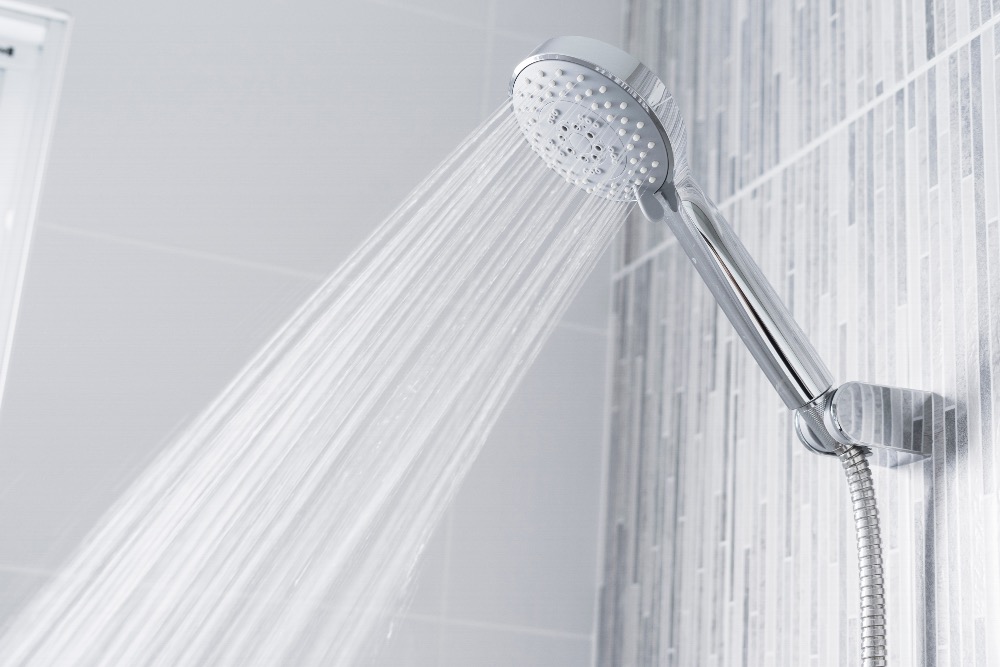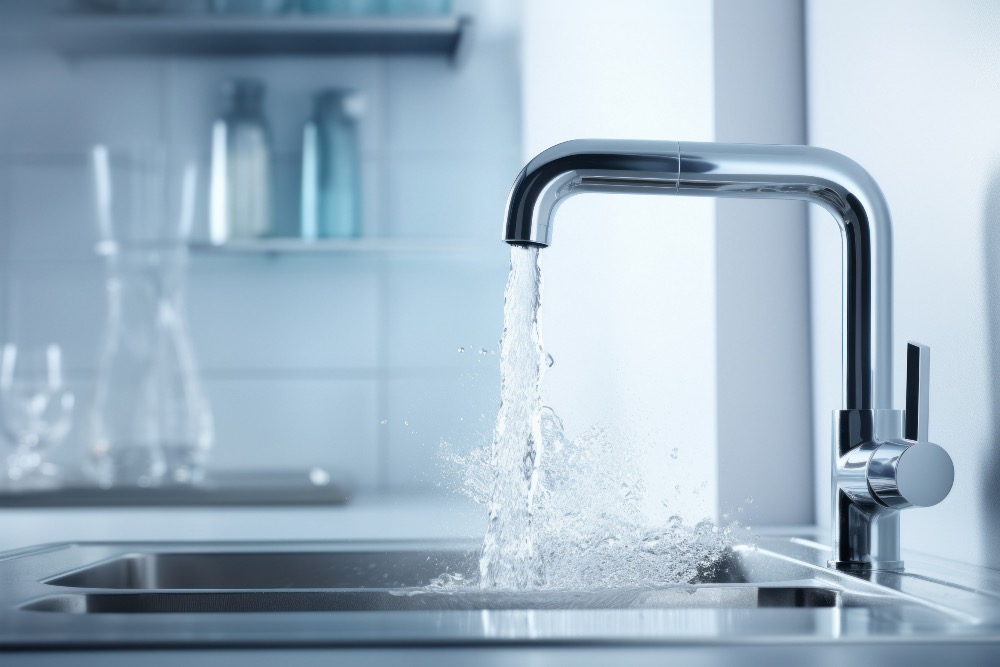Last Updated: Saturday, 10th February 2024
The No-Nonsense Guide to Identifying Your Water System
Ever wondered why your shower dribbles instead of gushes? Or why your taps are more of a trickle than a torrent? Knowing your home's water system is key to solving these mysteries. This guide will help you figure out if you have a gravity-fed system, a combi boiler, or an unvented cylinder. Let's get to it!
What Are the Types of Water Systems
Gravity-Fed System
Common in older homes, gravity-fed systems rely on either both a cold water tank and a hot water cylinder, or mains cold water and a hot water cylinder. Usually, the cold tank is found in the loft and the hot water cylinder is tucked away in an airing cupboard.
The water pressure is determined by the height of the water tank above the tap or appliance; The more height you have the more pressure you have in your system.

Advantages of Gravity Systems
Energy Efficiency: Gravity systems use the Earth's natural pull to move water, removing the need for external energy sources like pumps. This not only saves you money but is also kinder to the planet.
Reliability: When it comes to dependability, gravity-fed systems have the upper hand over systems that rely on pumps. Even during a power cut, they'll keep the water flowing, ensuring you're never left high and dry.
Low Maintenance: The beauty of these systems lies in their simplicity - fewer moving parts mean less can go wrong. This translates to lower upkeep costs over the long haul.
Simplicity: When it comes to ease of use, gravity-fed systems take the cake. They're straightforward to design, a doddle to install, and a breeze to operate, often requiring less know-how than their pump-dependent counterparts.
Disadvantages of Gravity Systems
Poor Water Pressure: Gravity systems depend on gravity to pull the water down. If there is not enough height, you won't have good water pressure. This is especially typical on the upper floors.
Use Valuable Space: Gravity systems need a hot water tank and sometimes a cold water tank. These can be quite big and will take up valuable space in your home.
Combi Boiler
If you don't see any water tanks in your home, but you spot a wall-mounted boiler, you likely have a combi boiler system. These systems heat water up on demand directly from the mains.

Advantages of Combi-Boiler Systems
Space Saving: By using a combination boiler, you remove the need for any tanks inside your home, freeing up valuable space.
Easy To Install: By using a combination boiler, you remove the need for any tanks inside your home, freeing up valuable space.
Save on Energy: Compared to immersion heaters that are found in hot water tanks, combination boilers are much more efficient at heating up water. They also only heat up the water you need at that moment.
Good Water Pressure: Combi-boilers use the mains water pressure to supply your home, which is generally an improvement on the pressure you will experience using a gravity system.
Disadvantages of Combi-Boiler Systems
Relies on Good Mains Water Pressure: If you live in an area with low water pressure, you might find that your boiler won't function properly or stay on.
No Backup: Hot water cylinders have immersion heaters which can still heat the water if your boiler fails. With a combination boiler, there is no hot water cylinder to fall back on should it break down.
Don't work with Power Showers: Power showers use powerful pumps which cannot be used in conjunction with a combination boiler.
Can Supply A Limited Number of Outlets: Combination boilers have a power rating, which relates to how much hot water they can heat up at one time. If you have too many outlets running at once, you may find that some outlets lose pressure or turn cold.
Unvented Cylinder
These systems pre-heat a large amount of hot water and store it for use later at mains pressure. They feature a system boiler that is connected to a large, high-pressure hot water tank and are usually found in modern homes. They're great for situations where your hot water demand is greater than that of what a combination boiler could supply off the mains water supply. So, larger homes and applications when multiple bathrooms are all in use at one time.

Advantages of Unvented Systems
Large Hot Water Store: With unvented cylinders, you have a large store of hot water on reserve. This means you can support more outlets at any one time. You simply need to specify the tank size to your peak demand usage.
Hot Water At Mains Pressure: Unvented cylinders store your hot water at mains pressure, meaning you can experience great hot water pressure at all of your outlets
Disadvantages of Unvented Systems
Relies on Good Mains Water Pressure: Unvented cylinders store your hot water at mains pressure. So if you have poor mains pressure, you will still have poor hot water pressure in your home.
Large Hot Water Store: The unvented cylinder is a large tank storing hot water and it will need to go somewhere in your home. Usually, these are installed in larger homes, but still, this can be an issue.
Why Should You Care?
You might wonder why any of this matters, but understanding your water system is really important when looking to diagnose issues or improve the functionality of your system. Knowing your water system can help you make smarter choices for your home. For example:
Better Showers: If you've got low pressure from a gravity-fed system, you might want to install a pump to boost it. But you will need to factor in that you cannot pump more than 12 litres/minute from the mains, in which case you may need a break tank.
Energy Efficiency: Combi boilers are generally more energy-efficient, so if you're thinking of switching, that's a plus.
Maintenance: Unvented systems, for example, need regular check-ups, so if you've got one, don't forget to schedule those in. Ultimately, understanding your system enables you to know what to keep on top of.
Understanding Your Water and Heating System
Gravity-Fed System
These systems are pretty straightforward. The cold water tank in the loft feeds water down to a hot water cylinder. This cylinder heats up the water, and then it's sent to your taps and showers. The height of the highest tank above the tap or appliance determines the water pressure. So, if your tank is high up, you'll get better pressure.
Combi Boiler
Here, the boiler heats water directly from the cold mains supply as you use it. That means you don't need any storage tanks. It's all done on the fly. However, because it's on-demand via the mains, you are limited by the supply of the incoming water mains. You might find that the hot water runs out if too many people are using it at once.
Unvented Cylinder
These systems use a large, high-pressure hot water tank to store pre-heated water. The water is heated either by immersion heaters within the cylinder or by a separate central heating boiler. Because the system is sealed, the water is kept under high pressure, which means you get excellent flow rates to all your taps and showers.
Common Issues With Water Systems
Gravity-Fed Systems
Low Water Pressure: Gravity systems are synonymous with low pressure in the modern age. Typically, you'll need a shower pump to sort this out but be mindful of the capacity of your tanks.
Learn how to improve your gravity-fed water pressure→
Combination Boiler Systems
Low Incoming Water Pressure: Combi-boilers need a minimum water pressure to function. If you have had a boiler fitted with poor mains water pressure, then you'll need to look at a mains water booster pump or something more drastic like an accumulator.
Learn more about accumulator systems→Poor Performing Outlets: At times, you might notice that a tap or two, or even your shower, isn't performing as well as you'd like. This could be down to lower incoming mains pressure or just the way your water system is designed. If you're dealing with this issue and you have a combi boiler, you might want to consider installing a pump. But bear in mind that not just any pump will do; you'll need one that is designed to be installed after your boiler setup.
Unvented Cylinder Systems
Low Incoming Water Pressure: Unvented boilers need a minimum water pressure to function, to power the boiler or to simply fill the tank. If you are currently not hitting this minimum pressure, you'll need to look at a mains water booster pump or something more drastic like an accumulator.
Learn more about accumulator systems→
Wrapping It Up
So there you have it - a comprehensive guide to understanding your home's water system. Whether you're dealing with a gravity-fed system, a combi boiler, or an unvented cylinder, you're now equipped to make informed decisions. From choosing the right shower to understanding why your tap pressure is what it is, you're in the know. And if you're looking to boost that water pressure, check out our shower pump buying guide.
Frequently asked questions
What are the types of water systems commonly found in homes?
The common types are gravity-fed systems, combi boilers, and unvented cylinders.
How is water pressure determined in a gravity-fed system?
The water pressure is determined by the height of the water tank above the tap or appliance. The higher the tank, the more pressure you'll have.
What are the advantages of a combi boiler system?
Combi boilers are space-saving and generally provide good water pressure.
What are the advantages of an unvented cylinder system?
Unvented cylinders are great for supplying large amounts of hot water on demand at high pressure.
What are the disadvantages of an unvented cylinder system?
Unvented cylinder systems require regular maintenance and take up cupboard space.
Why is it important to understand your home's water system?
Understanding your water system helps you diagnose issues, improve functionality, and make smarter choices for your home.
Any more questions?
If you have any queries or questions about the products we sell, or even your next project, give us a shout! We'll try our best to give you a hand.

